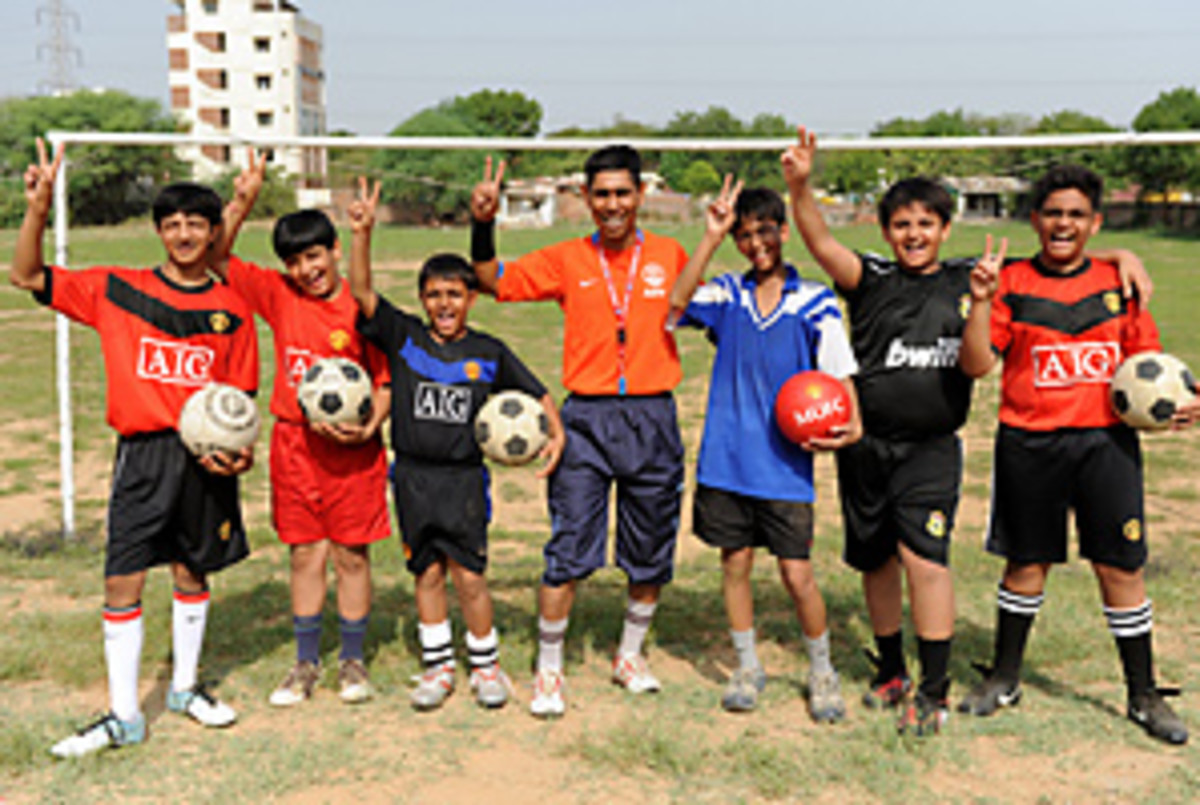
Gothia Cup an extraordinary annual celebration of world youth soccer
GOTHENBURG, SWEDEN -- Can an event with 71 countries and more than 35,000 athletes participating be a secret?
Maybe. Because the Gothia Cup -- the largest youth soccer tournament in the world -- flies mostly under the radar, outside of this southwest corner of Sweden.
Which is too bad, because the 35-year old event is one of the most extraordinary athletic happenings in the world.
"I don't think you'll find anything like it anywhere else," said Niclas Andersson, the tournament's marketing director.
The Gothia Cup, also known as the World Youth Cup, was held last week. Sixteen hundred soccer teams, ages 11 to 18, boys and girls, from all around the world converged on the second-largest city in Sweden for a sort of United Nations-with-shinguards.
"The unique thing is that it is a meeting place for children from all over the world," Andersson said. "A place where teams from the U.S. and Iraq can meet without politics involved. A place where everyone can shake hands on a fair level."
That's not just a marketing director's slick spin. For a week, the city of Gothenburg is transformed into an international brother-and-sisterhood. Teams from South Africa dance down the main avenue in unison. German girls teams sing on the tram on their way to games. The Brazilians and their drums provide a very non-Swedish rhythm to every event.
This year, for the first year ever, a girls' team from Iraq participated. Andersson was in Iraq last fall and was approached to see if it was possible for a girls team could come. A team from Duhok -- in Iraqi Kurdistan -- was put together, with girls who mostly played soccer on their own, and came to Sweden.
At the opening ceremonies, the Iraqi girls walked in with their flag, in front of 52,000 spectators. At first they were nervous. By the end of the night they were dancing.
"This was amazing to me," said Ali Alhasnawy, an Iraqi who fled Saddam Hussein's regime for the safety of Sweden 20 years ago and works with the Iraq teams as an intermediary.
"They were so scared at first. But then they were dancing. The music and the spirit pushed them and broke down the walls."
The Gothia Cup breaks down walls. The teams live together in schools, sleeping on the floors of separate classrooms, eating together in communal dining halls, playing soccer by day, hanging out in the hallways or at the disco at night, sharing cultures, music and Facebook addresses.
"It's about soccer, but it's not about winning," said my 15-year old daughter, whose team traveled from California to play. "It's about all these people you normally wouldn't meet, coming together through soccer."
The event's Opening Ceremony is goosebump-worthy -- with teams from Africa dancing and doing the wave alongside teams from South America, Europe, the Middle East and Asia.
Gothenburg, a city of a half million people, turns itself over to young athletes. For American parents used to fighting for field time or the mere existence of their kids' clubs, it's an astonishing thing to see a city providing 110 grass fields, free transportation and complete support for a youth event. Gothenburg profits from it -- the city brings in millions from the event. Each team arrives with parents and supporters in tow for a week of football and sightseeing.
Some of the teams are all-stars. Some of them are clubs. Some, like ours, have Swedish coaches who are proud to give their players such an experience. Some have just heard through the youth sports world what an incredible opportunity this is.
The Gothia Cup works hard to support soccer around the globe, with grassroots organizations in Africa and Brazil. It also is a celebration of both genders. The female athletes -- which make up 30 percent of the participants, but that number is expected to jump in the next few years -- play on the same fields as the boys, play their final in the main soccer stadium, are treated as complete equals.
What every American parent says, with amazement, after experiencing it: "There's just nothing like this back home."
Zina-Zizo Jamil, the 17-year old captain of the Iraq girls team is well aware of how rare an opportunity she had.
"In Iraq we cannot talk about girls football," she said. "It does not exist."
And though Iraq media has broadcast pictures back to Iraq of the girls team, Jamil says it is being treated the way some skeptics once treated the moon landing.
"They see the pictures, but they still don't believe it," she said.
The Iraq team, predictably, didn't fare well competitively. They lost all four of their games. But the experience translates far beyond wins and losses.
Jamil said the night of the opening ceremony was the best night of her life.
"I cannot put my feelings into words," she said. "For the first time, I am a woman, a girl, a team captain, representing my country. That was unbelievable."
"We could break down the wall about what our society thinks about girls."
That's quite a legacy.





